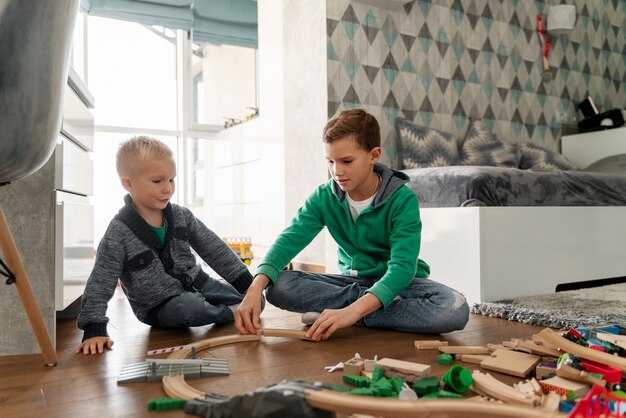Okay — let’s begin 2023 by reminding ourselves of some basic truths about relationships. One: you deserve respect, kindness, appreciation, consideration and someone who genuinely wants to be with you. Those things aren’t rewards you have to earn; they’re the baseline. You are worthy of love and deserve a partner who makes you a priority. Two: you can’t — and shouldn’t try to — change another person. Some people simply aren’t capable of being emotionally mature or available for a healthy partnership. Your responsibility is to become clear-eyed enough to notice the difference. The first signs to watch are how someone handles conflict, whether they can be vulnerable, and whether they’re capable of true intimacy. Learn what those skills look like, practice them in yourself, and it will become obvious when others can’t or won’t meet that standard. Three: concentrate on what’s within your control and set firm boundaries around what isn’t. You can control how you speak during an argument, the choices you make, and how you show up in the relationship — you cannot control how the other person behaves or whether they show up reciprocally. Often people complain about their partners without examining why they stay with someone who repeatedly neglects them emotionally or physically. Four: healthy relationships require effort from both people because love asks something of us. Love involves self-sacrifice, attentiveness and a desire to meet one another’s needs, but it must be mutual. Strong partnerships are built on shared respect and willingness to give and receive; real love also draws the line at neglect, because failing to protect your needs leads to sabotaging the relationship and abandoning yourself. You can’t find a lasting partnership if you don’t first practice self-respect and self-love. Five: a toxic relationship is worse than being alone — it won’t cure loneliness, it will deepen misery. Many people remain stuck in damaging partnerships without recognizing it, largely because unhealthy dynamics attract unhealthy dynamics. This isn’t a judgment, it’s a pattern. Six: it’s rare for relationships to end when both people are committed to intimacy, vulnerability, empathy, validation and learning how the other person feels loved and appreciated. Instead, millions of relationships break down precisely because those elements are missing. It’s understandable not to know what you don’t know, but it’s not acceptable to repeat the same mistakes and expect different outcomes. You deserve better. So start this year by stopping the finger-pointing and refusing to make your partner the enemy — that only keeps you trapped in destructive cycles. Rather, take an unflinching look at the real state of your relationship and ask the hard questions: what can I be accountable for? Which parts of the destructive conflict cycle do I personally perpetuate? And if you are in an abusive situation, ask how to keep yourself and your children safe from people who aren’t safe to be around. Take these reflections with you as you move forward.
Practical next steps and tools

Use the following concrete strategies to turn those truths into everyday practices:
- Identify and name behaviors, not people. When something hurts, describe the action (“When you interrupt me during meetings…”) instead of labeling the person (“You’re selfish”). Naming behavior keeps conversations focused and defensible.
- Practice “I” statements. Example: “I feel unheard when my ideas are dismissed. I need a chance to finish before we respond.” This reduces blame and invites problem-solving.
- Set specific boundaries and consequences. A clear boundary might be: “I won’t continue conversations that include name-calling. If that happens, I’ll leave the room and we’ll revisit this later.” Follow through consistently so boundaries remain meaningful.
- Use active listening and validation. Reflect back what you heard (“It sounds like you felt ignored today”). Validation doesn’t mean agreement; it means acknowledging the other person’s experience, which defuses conflict and builds safety.
- Request a repair attempt. After a fight, ask for a specific repair: an apology, a change in behavior, or a conversation about what needs to be different next time. Healthy couples do frequent small repairs.
Red flags and warning signs

Pay attention to patterns, not isolated mistakes. Repeated signs that a relationship may be unhealthy include:
- Consistent disrespect, belittling, or humiliation
- Gaslighting, repeated lying, or manipulating facts
- Controlling behavior around money, friends, travel, or communication
- Refusal to accept responsibility, frequent blame-shifting
- Escalating anger, threats, intimidation, or any physical harm
- Repeated breaches of trust after clear agreements
How to decide whether to stay or leave
Ask yourself these practical questions:
- Has the person acknowledged the harm and taken concrete steps to change? Are changes sustained over time?
- Do both of you accept responsibility for your parts of the conflict cycle?
- Can you imagine a future where you consistently feel safe, respected, and prioritized?
- Are there patterns that put you or your children at risk physically, emotionally, or financially?
If answers are mostly “no,” leaving or creating physical and emotional distance may be the healthiest choice.
Safety planning and seeking help
If you believe you are in danger or experiencing abuse, prioritize safety:
- If you are in immediate danger, call local emergency services right away.
- Develop a safety plan: identify a safe room, pack an emergency bag with essentials, memorize important numbers, and decide where you can go in a crisis.
- Tell a trusted friend, family member, or co-worker about your situation and ask for help if you need a place to stay or someone to check in.
- Contact local domestic violence services for confidential advice, shelter, legal help, and counseling. If you are in the United States, the National Domestic Violence Hotline is 1-800-799-7233 (TTY 1-800-787-3224) and you can visit thehotline.org for chat and resources. If you are elsewhere, search for your country’s domestic violence hotline or local crisis services.
Self-care and growth
Working on relationships also means caring for yourself:
- Strengthen social supports — friends and family who affirm your worth help you stay grounded.
- Learn and practice emotional skills: mindfulness, naming emotions, regulating intense reactions, and asking for what you need clearly and calmly.
- Consider individual or couples therapy with a licensed clinician who specializes in relationships. A skilled therapist can teach repair strategies, boundary-setting, and tools for healthier communication.
- Set realistic timelines for change. Genuine transformation takes sustained effort; give yourself permission to leave if the other person is unwilling to do the work.
Remember: wanting a relationship to work does not obligate you to accept disrespect, abuse, or sustained neglect. You deserve safety, reciprocity, and care. Use these rules and tools to evaluate your situation honestly, act to protect your wellbeing, and—when appropriate—invite your partner into a shared process of growth. If safety is a concern, prioritize contacting local emergency or support services immediately.













